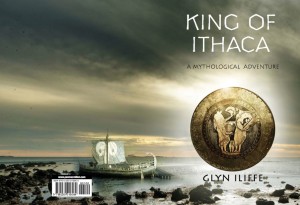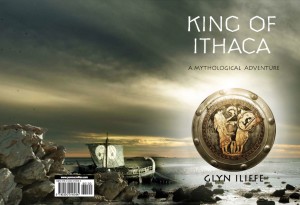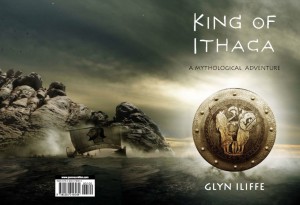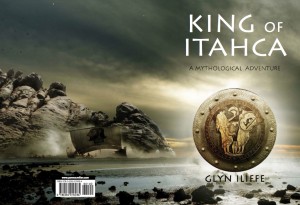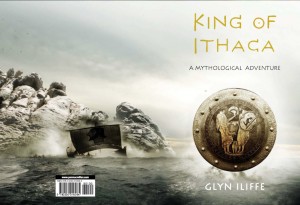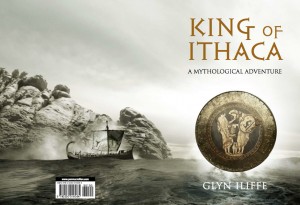The truth about being an author
Ever wondered what it’s like to be an author? I spent most of my life dreaming of how it would feel to be published, only to find it was nothing like what I’d expected. If only I’d known! Perhaps I’d have chosen to be an insurance underwriter instead. Or a florist. Or, more to the point, maybe I’d have gone about it more efficiently and been published sooner and with less pain. And that’s the point of this page: to act as a guide to those who are interested in what goes on behind the portcullis of Castle Publishing. Not a how-to of novel writing or a manual on how to get published – those have been done many times by people much better equipped to do it than me – but an honest illustration of what happens after a writer is offered a contract.
Before it happened to me, the post-contract world was like a phantom – something half seen and without form. The dream was clear enough, but the reality – the detail – was beyond my imagination. Things like: how does an author get offered a contract? What does the contract say? How does he get paid (and how much)? What does the editing process involve? Does he get a say in the cover design? What marketing does he have to do? These and a hundred other questions, to which the answers used to be a holy mystery. Glimpses could be found here and there, in books and on the internet, but they only added to the myth rather than giving any substance. Well, here’s my honest account of what it has been like for me to be an author.
My beginnings
Before I explain what happened after I was offered a writing contract, perhaps I should share a little of what came before.
As with most would-be-authors, the dream was enticingly simple:
- come up with idea
- write book
- get accepted by major publishing house
- receive dauntingly large advance cheque
- enjoy widespread fame
- become literary legend.
Easy as that. At least the dreaming part is. For a dream to come true, however, it requires motivation, hard work, talent and luck, all in a continuous cycle. Omit any of these ingredients and the dream soon crashes. Even with them, the task is ridiculously difficult.
The odds of an unpublished author getting their work accepted are depressingly low. Assuming he or she can turn their idea into a full length novel, there’s probably less than a one in two hundred chance of getting it published. The reasons for this are manifold: the book is well written but there’s no market for the subject; the idea is great, but the writing isn’t up to scratch; it’s beautifully written with a saleable storyline, but the author either doesn’t send it to the right agents/publishers or gives up after a handful of rejections; both the idea and the writing are rubbish, no buts. In reality, with so many synopses and sample chapters arriving on the desks of the important decision makers, they’re usually happy for any excuse to say no.
My own experience of the route to becoming a published author hasn’t been an easy one. It has taken years of hard work, frustration and disappointment and would not act as an encouragement to others, so I won’t recount it in all its horrific detail here. After all, many published authors go through the mill before seeing their books on the shelves of Waterstones, WHSmiths or their local book shop, so I’m not unique. I just seem to have taken a longer and slightly harder route than most others. I began my first novel after leaving Sixth Form and entering the real world, where I quickly realised that most jobs available to me were rubbish. That was the motivation to kick-start my dream of becoming an author. I bought a second hand typewriter, chopped away at it for several months and produced a novel involving time travel and the Second World War. I even had the nerve to send it to a few publishers, all of whom rejected it out of hand. Not to be deterred, I wrote a second book set in an archaeological dig in Iraq. This, also, was rejected so I followed it with a third about a man who falls in love with a prostitute. I should mention here that I wasn’t just popping out one book after another in the hope I’d get lucky. The first two books had taught me a lot about how to plot a story, create characters, write dialogue and use language, and by the third this was starting to tell. Encouraging comments were appearing on the rejection letters (which is often a good sign) and one agent even asked to see the whole manuscript. But it was still rejected.
It would have been easier to give up then, but that would have just left me in the horrible position of being a dreamer without a dream. So I decided to travel the world and gain a bit of experience instead, which my writing definitely lacked. When I returned I was a more confident person, but far from the finished article. So I went to university and spent three years on a combined English and Classical Studies course. After graduation I did some more travelling, became a Christian and got married. I also ended up working in a call centre – not the most glamorous of jobs – so felt it was time to return to the writing. With the benefit of experience, a sound education and a lot more maturity than when I’d last attempted a novel, I came up with the idea for a series on Odysseus. The first book took over two years to write, followed by a succession of encouraging rejection letters and, eventually, a request from Hodder & Stoughton to see the whole manuscript. The editor rang to say she had enjoyed the book and was going to discuss it at a meeting. After all those years in the wilderness it felt too good to be true.
Getting lucky
And it was too good to be true. The Marketing boys said there was no demand for books on the ancient world and King of Ithaca was rejected. Disheartened, I shelved it until 2004, when the Olympics were held in Athens and the film Troy was released, reviving interest in Greek mythology. Dusting off the manuscript, I sent it out to a few more agents and publishers in the hope someone would be interested. The last straw came when one agent wrote to me to say that, much though she liked the premise of King of Ithaca, the market was now being flooded with books on the ancient world. That was my 38th and final rejection. Afterwards, I ditched the book for good and started writing a teenage novel.
I mentioned a writer needs motivation, hard work, talent and luck. The first two I had, though with rather more amateur enthusiasm than strategic wisdom. The third is a matter of opinion. The fourth has always evaded me. In many ways I’m very lucky – I have a happy family, good health, a roof over my head and all the food and drink I need. But in terms of chance, I’ve never won anything more than £1 on a line of bingo (in 1975) and I’d never had any luck with the writing.
In 2006 that all changed.
I received an e-mail from the editor at Hodder & Stoughton who had liked my work. She was now working for Pan Macmillan, she said, and would I like them to consider King of Ithaca for publication (this is three years after the editor had last read the book – she’d been working in Australia in the meantime)? OK, I replied. This time the Marketing people said there was a great market for books on the ancient world – think Iggulden, Sidebottom, Scarrow et al – and they offered me a contract.
The book contract
The first illusion to be dispelled was the contract. I’d always imagined I would receive a letter on headed paper telling me in formal tones that my book had been accepted by publisher X and that a contract, requiring my signature, was enclosed. You know – something I could frame and put on the wall above my desk. But it didn’t happen like that for me. Instead, my editor phoned to say her colleagues at Pan Macmillan liked the book and wanted to offer me a contract. I can recall the conversation quite clearly – how nervous I felt when I heard my editor’s voice and realised why she was calling, and how stunned I was when she told me the good news. I didn’t really know what to say (or feel or do). I wasn’t overcome with excitement. I didn’t run around the house shouting with elation. I just felt a bit sick and – I suppose – relieved that my lifelong goal was finally going to be attained.
I did get an e-mail confirming the offer, but it didn’t look impressive enough to frame and put on the wall.
So what’s in an author’s contract? As a legal document it’s quite dull. It also prohibits me from disclosing the terms of the agreement without Macmillan’s consent, though I think I’m safe to say it covers how the book will be edited, published and marketed. It also goes into detail about how much and when the author is paid.
So, how much does an author earn?
The advance
To start with, forget the headlines you’ve seen and heard about the advances offered to writers. The reason those advances make the news is because they’re out of the ordinary. Usually, as I understand it, the publisher bases their advance on the royalties they expect an author to earn from the sales of his book. (Royalties are a form of commission: put simply, if a book costs £10 to buy and the author receives a 10% royalty, he will earn £1 for every book sold; if his publisher expects to sell ten thousand copies of the book, they might offer him an advance of £10,000). Popular authors and authors of exceptional books will, of course, be offered a higher advance.
But the headlines can deceive in other ways. For one thing, an advance is not necessarily paid as a single, up-front lump sum. When my editor rang about the contract for King of Ithaca and two follow-up novels she also offered me an advance of £15,000. This sounded great! What I didn’t realise until later was that the advance would be chopped into smaller pieces, each one payable at different stages of the process. The £15,000 was not for King of Ithaca alone, as I had first thought, but represented £5,000 for each of the three books. Each £5,000 was further broken down into £1,000 on signature of the contract, £2,000 on delivery of the manuscript, £1,000 on publication of the hardback and the final £1,000 on publication of the paperback. I received my first payment of £3,000 in September 2007 for signing the contract covering all three books. A second payment of £2,000 arrived in March 2008 for supplying the manuscript for King of Ithaca. Other instalments arrived as each stage of the process was fulfilled, with the final payment being received in September 2010 after publication of the paperback version of The Armour of Achilles – a gap of three years between the first and last payment. They don’t tell you that in the newspapers.
This all makes sense, of course. After all, I wouldn’t pay someone up front for work they hadn’t finished, though I would happily pay a reasonable deposit. And by splitting the advance into pieces the publisher offers the author an incentive to keep fulfilling their part of the contract. I only point this out to dispel the common illusion that the large advances we hear about are paid as a lump sum.
Another thing about advances that some people don’t realise is that they are an advance – i.e. an upfront payment that will be paid for out of the author’s future royalties. After King of Ithaca was launched in hardback on 6th June 2008 my next statement showed sales of 4,495 books, earning me £5,073.84. I also received £5,781.14 from sale of the translation rights into Russian and Greek, making a cool £11,000, as near as damn it. Up to that point I had received the £5,000 mentioned above, £1,000 for publication of the hardback and another £2,000 for delivering the manuscript of The Gates of Troy, which I’d finished in the spring. This total of £8,000 was deducted from the royalties, as I’d expected, leaving me a little over £3,000.
Of this, nearly eight hundred pounds was held back to cover “Future Deductions”. This is usual practice, where the publisher retains a percentage of the royalties earned to offset possible returns of unsold books (e.g. if Waterstones buy a thousand books but only sell eight hundred, they will return the remaining two hundred and be refunded by the publisher). It still left me with a little over two thousand pounds, though. A small holiday, perhaps. A few repairs on our dysfunctional car.
But no. This amount was kept back to partly cover the as-yet-unpaid instalments of my advance. In effect this meant that, although I had only received £8,000 of my £15,000 advance, I would not receive a penny in royalties until I had earned out the remaining £7,000. I didn’t clear this until after the launch of the paperback of King of Ithaca and the hardback of The Gates of Troy in 2009. Consequently, in my case the arrangement of an advance proved to be more of a burden than a help. I expect the same arrangement applies to all writers, so newly accepted authors should bear this in mind when they await the arrival of those first statements!
Royalties
I get paid every six months and I guess it’s the same for most other authors. My statements arrive at the end of every March (covering the period from July to December of the previous year) and at the end of every September (covering January to June). The payments are broken down by the different formats of each book I’ve had published – hardback, paperback, trade paperback, e-book and so on. In each category, book sales are further broken down by whether they are UK sales, Eire sales or export sales (i.e. everywhere outside the British Isles), and the level of discount applicable.
As with most business dealings, discounts are given for higher volumes of sales and this discount is reflected in the level of royalty paid to the author. On my September 2008 statement mentioned above, in which I earned £5,073.84 in royalties, I received 8% of the cover price for 2,500 hardbacks sold at the highest discount. For a £12.99 cover price, this means I earned £1.04 per book sold, making a total of £2,598. For the 606 copies sold in twos and three to small bookshops – receiving no discount – I earned royalties of 12.5% per book, or £1.62. Lower royalties of between 6% and 7.5% apply to paperbacks: for a £6.99 book I receive between 42p and 52p. If books are returned within a certain time the full royalty is deducted from the next statement; if they are returned later a lower amount is clawed back, so I imagine this means the retailer doesn’t receive the full amount they paid.
Naturally, these royalties reflect the cost of preparing and printing books. For an e-book I receive a royalty of 25%, which is boosted by the knowledge there won’t be any deductions for returns on future statements.
Another excellent source of income, though, is the sale of translation rights. The rights to King of Ithaca were sold in Greek, Spanish, Russian, Portuguese, Bulgarian, Serbian and Romanian. After my publisher’s commission for arranging each sale (a set percentage in every case, as set out in my contract) I received from between £325 and £4,776 for the different translation rights.
Authors also receive up to 6p every time their books are borrowed from a UK library. Up to the end of June 2012 my books have been borrowed nearly fifty thousand times, earning me just short of two thousand pounds.
As for the original question – what does an author earn – it’s all down to volumes of books sold. Sales will always depend on the marketing and distribution capabilities of the publisher, in the first instance, and then the quality of the writing and the appeal of the subject. However good a book is, if people don’t hear about it or it doesn’t get into the hands of enough readers then it’s likely to fade away and die an undeserved and premature death. On the other hand – with some notable exceptions – if a book is launched with a great to-do and is sent all around the world, but is badly written and has no popular attraction, it won’t last either. So what about my fortunes so far? At the last count I’d sold just over 56,000 copies in English and probably around 15,000 in other languages, earning me enough to pay off the mortgage. But I won’t be giving up the day job for some time yet.
The editing process
I had no idea how difficult the editing process would be.
After I’d signed the contract my editor contacted me to say the manuscript needed to be cut down by a third, from 180,000 words to 120,000. This was a complete shock as she’d already read King of Ithaca two or three times and hadn’t mentioned it being too long. To be fair, though, I suspect someone senior had got scared at the thought of publishing such a lengthy book by a first-timer and had given my editor the job of delivering the bad news. I’m sure this doesn’t happen to many other authors, even new ones.
Naturally, I wondered how on earth I could engineer such a genocide, but my editor was a great help. Being less involved with the book than I was, and having that vital experience that editors bring to raw manuscripts, she was able to stand back and take the pragmatic approach I would have been incapable of doing by myself. Going through the manuscript page by page, she proposed removing various scenes, sub-plots and characters, putting her suggestions in a report that listed the changes by chapter and page number. I worked at these for several weeks and finally got it down to around 130,000 words, which the publishers were content with. Surprisingly, I was happy with it too: the story was rather less flabby in places and I’d learned a hell of a lot about the extent to which a piece of writing can be edited. That said, one day I might return to the original manuscript and put back all the scenes that were chopped!
That was just the first stage, a sort of “structural” edit. Next came the line-by-line editing, where the same editor went through each page with a fine toothcomb and commented on such things as prose, dialogue and the finer points of plot and characterisation. Another report and another A4 manuscript covered in alterations and comments. It should be noted that the editor only makes suggestions and the author is at liberty to refuse any changes he or she disagrees with. My response was to agree with some, disagree with others and compromise on the majority. Overall, this edit was less painful than the first and, in a slightly masochistic way, I was beginning to enjoy the process – if only because I felt I was learning so much and becoming a better writer with it. Not that editors are writers. If they were, they’d be busy writing their own books. But a good editor helps you to see your work as others might see it; he or she gives you an independent, professional opinion that is intended to build your book up rather than shoot it down. The process is painful, but well worth the time, hard work and sacrifice involved.
After the second edit was complete the process moved to the next stage and was sent to a copy editor. The copy editor’s job is essentially to check for grammar, spelling, consistency and continuity. Again, the copy editor sends a report and another copy of the manuscript annotated with suggested changes. Fortunately, this stage is less arduous than the earlier stages and is also very educational. By this point, King of Ithaca had already been through at least three rewrites before I was offered a contract (originally it was written in the first person from Eperitus’s viewpoint) and another three at the hands of my editors!
The copy editing stage isn’t quite the end of it, though. After I’d made the necessary changes the manuscript was sent to the typesetter, whose job it is to lay everything out exactly as it will appear in the printed version. It’s then printed again and sent to the author, the original editor and an outside proof reader to check for errors only (such as mis-spelled or missing words). By this time I couldn’t bear to read King of Ithaca again, so gave it to my wife to proof-read. Then, but for the cover design and map, it was ready for printing and binding.
I should add that while all this was going on, I was also writing the second book in the series. One of the shocks about the contract was the delivery dates for the next two books in the series: fourteen months to deliver the second and another thirteen to deliver the third. It had taken me two and a half years to write King of Ithaca and now I had a full-time job, a two-year old daughter and a new born baby girl to take up my time. I think these were the hardest working months of my life, working all my annual leave, every weekend and bank holiday, as well as most evenings for around fifteen months. I did give myself Christmas Day off, though.
The cover
My contract ensured that I would be consulted on the covers for all three books. With the first book my editor called me to discuss the ideas that she and the Marketing department had come up with. After this, they commissioned artist Larry Rostant (who has recently designed the covers of George R R Martin’s A Song of Ice and Fire – a.k.a. Game of Thrones – series) to create some alternative visuals. The differences were only slight, such as the design of the shield, alternative rock formations, the font and so on – see below. These were sent to me more for comment on which aspects I preferred of each. I contacted the publisher to point out that the shield wouldn’t have been used in the Bronze Age, but was politely told to stop being an anorak. They were right, of course: the most important thing about a book cover is that it catches the eye and sells books. However, they did agree to change the motif on the sail from the head of a ram to a dolphin, which is what Odysseus would have had. And I have to say they chose an excellent dolphin, using an image from the walls of King Minos’s palace on Crete.
Eventually, after typesetting and the cover had been sorted out I received an early paperback copy of the book – a rough preview version that is sent out to reviewers before the hardback is published. It was printed on cheap paper with what looked like a colour photocopy stuck on the outside, but it was wonderful. Not so long after that my free hardback copies – ten of them – arrived, followed by a bottle of celebratory wine from my publishers. A nice touch.
What happens at a book launch?
To hold a professionally produced hardback of your first book – the culmination of your lifelong ambitions and much hard work – is a feeling that can’t be described. To enter a bookshop and see a table display full of them is even better. King of Ithaca was released on Friday 6th June 2008 and the launch took place after normal closing time at Waterstone’s in Market Harborough. I turned up early and spent the first half hour meeting the guests as they arrived. Then, after another half-hour of hobnobbing with folk and resisting the temptation to down several glasses of wine, I gave a twenty minute talk and a reading to a room of around ninety people. That was followed by signing lots of books, during which I was worried that I would mis-spell friends’ names or that the ink in my pen would run out halfway through a signature (which happened at the launch of my next book; it looked so bad I had to swap it for my own copy). Ever since then I’ve stuck to Bics.
Perhaps the worst moment was being asked by an erudite classics fan whether my book had passed through the ivory gate or the horn gate. She was obviously much cleverer than me and as I looked blankly back at her I could see the expression on her face change from expectation to disappointment to pity. She was referring to Penelope’s dream in Book 19 of The Odyssey, in which Odysseus’s wife says “Those dreams that pass through the gate of sawn ivory deceive men, bringing words that find no fulfilment. But those that come forth through the gate of polished horn bring true issues to pass” – i.e. was my book based in fantasy or fact? I’d studied this at university fourteen years earlier, but it was the last question I’d been expecting at my book launch and it taught me that even in your moment of pride you can be humbled.
Does an author have to do any marketing?
Yes, authors are required to make themselves available for such things as magazine or radio interviews. This was one of the worst parts for me, as I don’t enjoy being in the spotlight. But I also realised that I couldn’t just sit back and rely on the Marketing department to promote my book (this is even more important these days, as publishers seem to concentrate less and less on advertising). Despite this, Pan Macmillan asked me to do very little and most of the talks and interviews I have done for all three books have been arranged by me.
Even before the launch of King of Ithaca (see above), the Marketing people arranged for me to give an interview at BBC Radio Leicester. This was incredibly nerve-wracking until the moment I entered the studio and put the headphones on. Then my nerves left me and I just got on with things. Less than a week later I had the launch party and spoke to around ninety guests, followed a week later by a talk in the Ure Museum at Reading University. Since then I’ve given talks in a variety of places and scenarios, from schools and libraries to prisons and annual dinners. Giving talks doesn’t get easier, but I’ve got less nervous about it over the years. I think the trick for me has been to pick subjects I’m very familiar with so that talking about them comes easily, and to thoroughly rehearse what I’m going to say so that I don’t have to refer to notes during the talk.
One area of marketing I’ve failed abysmally in is use of the internet. I should have set up a website when my first book was launched, but being a dreadful technosaur and having my time taken up with other things I never really got around to it. I’m even worse with social media, partly because I never really understood the potential of Facebook and Twitter for marketing yourself. That was a missed opportunity, but I’m getting there at last.
How do you feel reading reviews?
At first I couldn’t bear to read anything anybody had written about my books. Not that the reviews have been bad. Generally the media have been kind and most reviewers on Amazon et al have been even kinder. But I felt very vulnerable at first, knowing that thousands of people were reading my innermost thoughts and, as I imagined, pulling them to pieces in their minds. Writing is a very personal process and if you’ve been fortunate enough to be published then that process is exposed to anyone who wants to buy your books or borrow them from the library. And when readers feel driven to review your work in the public domain – either through appreciation of or revulsion at your efforts – then their words have the power to puff up or puncture your frail author’s ego.
I was so afraid of reading something bad that for the first year I wouldn’t read any reviews at all. When my wife eventually bullied me into it I found that most reviews were generous and uplifting. It always amazes me to hear how much people have enjoyed reading the books. But I also allowed bad or mediocre reviews to get to me. As with all things, though, time and experience toughen you up and nowadays I tend to treat the occasional bad review with relative indifference – everyone’s entitled to their opinion – and concentrate on the good things that people have to say. To do otherwise would be morose.
Any questions?
I’ve tried to cover all the things I would have wanted to know before I became published, but if I’ve missed anything then please feel free to ask me a question via my Contact page. I’ll answer as many as I can. If any questions are likely to be of wider interest I will print the answers here.


